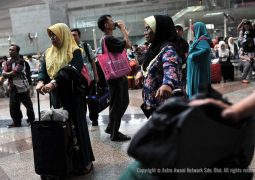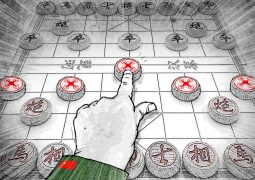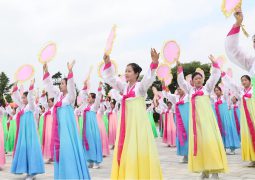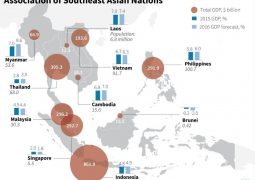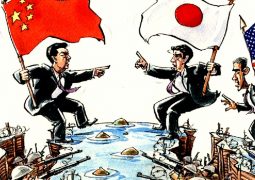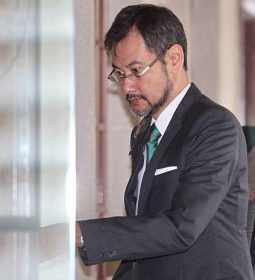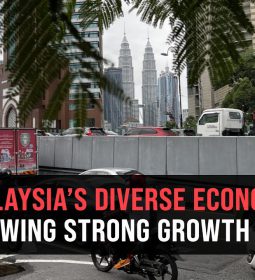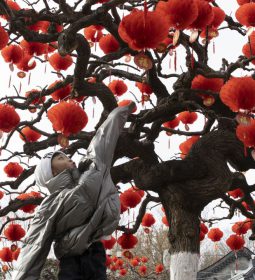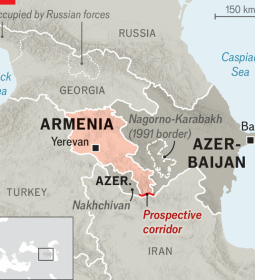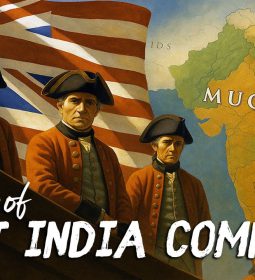Blow for Beijing: Lai Ching-te, pro-independence candidate, wins in Taiwan elections

Taiwan’s ruling Democratic Progressive Party pulled off a historic third consecutive presidential victory on Saturday as voters shrugged off warnings by China that their re-election would increase the risk of conflict.
Lai Ching-te, Taiwan’s current vice president, declared victory on Saturday evening while his two opposition rivals both conceded defeat.
“This is a night that belongs to Taiwan. We managed to keep Taiwan on the map of the world,” Lai told thousands of jubilant supporters at a rally after his win.
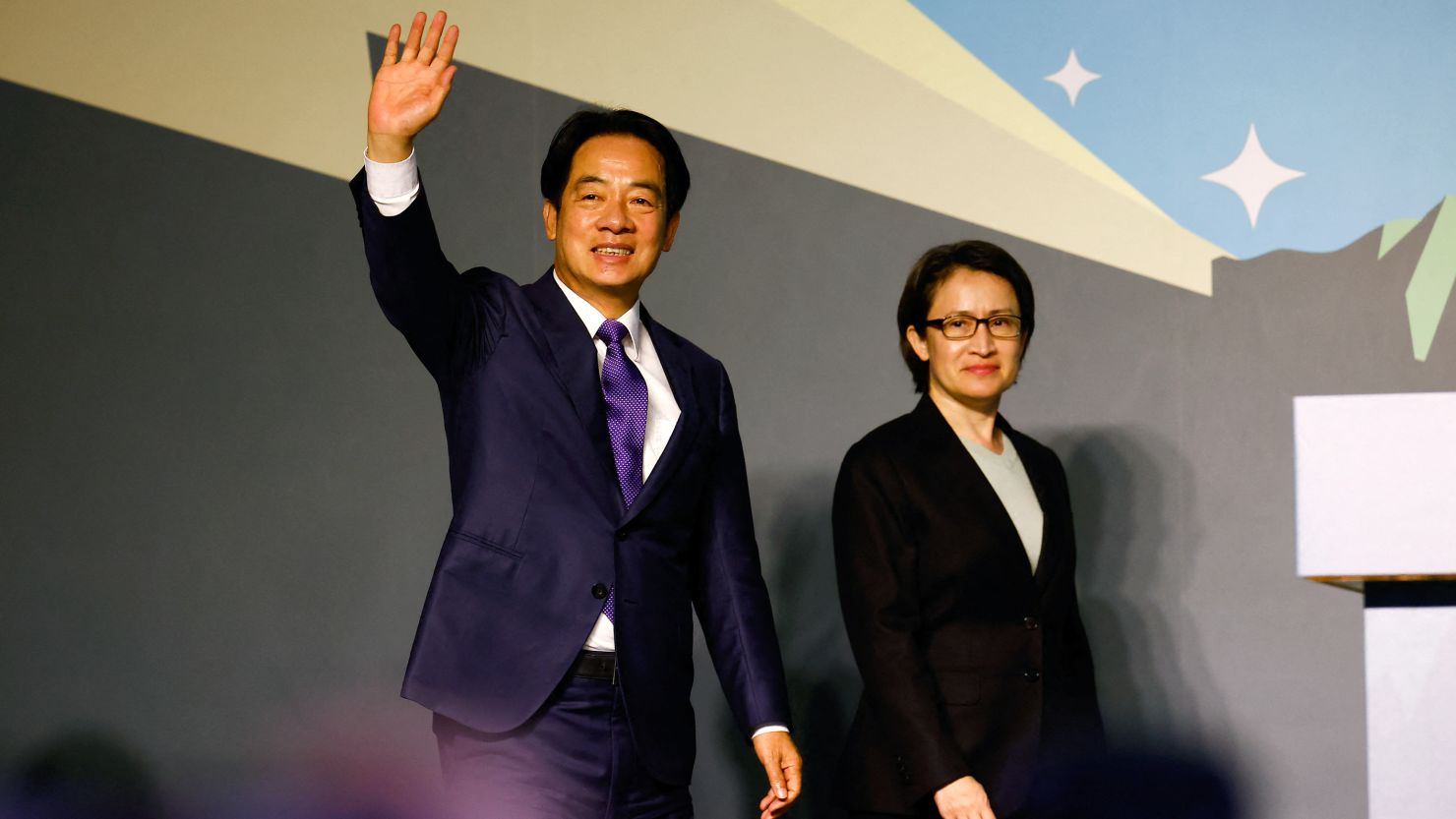
“The election has shown the world the commitment of the Taiwanese people to democracy, which I hope China can understand,” he added.
Lai’s running mate Hsiao Bi-khim, who recently served as Taiwan’s top envoy to the United States, was elected Vice President.
Results from Taiwan’s Central Election Committee, which were still being finalized when the victory and concession speeches were being made, showed Lai with around 40 percent of the popular vote while his two main rivals trailed with 33 percent and 26 percent respectively.
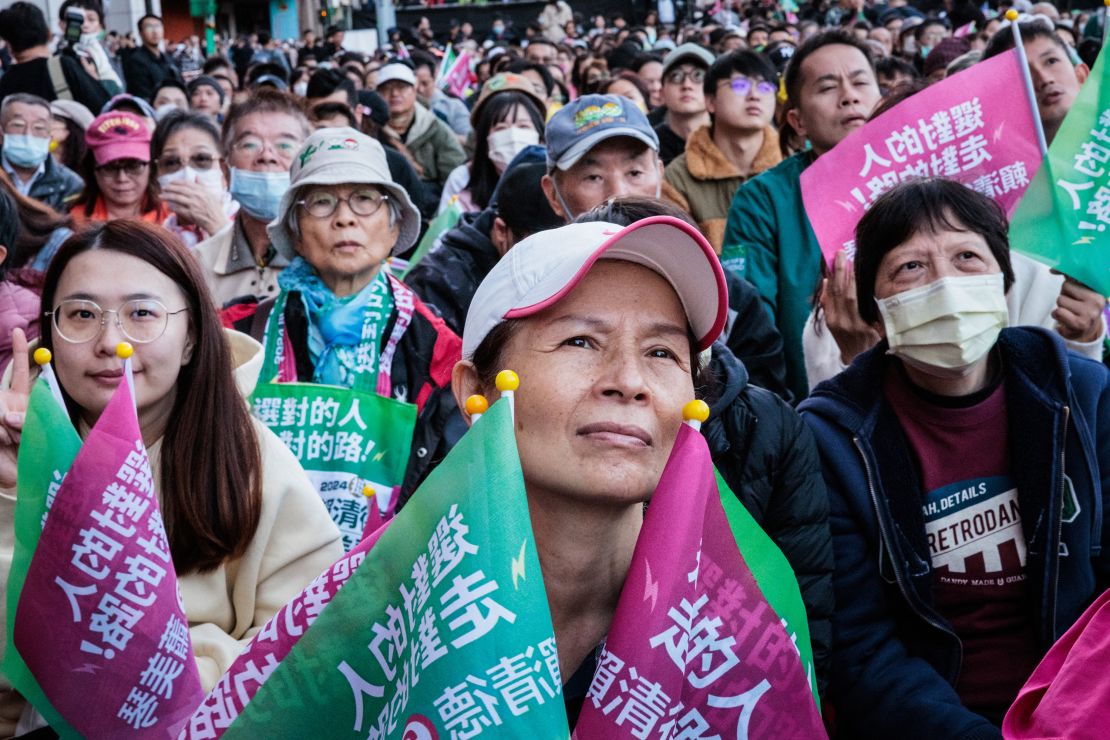
The boisterous election campaign, an illustration of Taiwan’s vibrant democratic credentials, was fought over a mixture of livelihood issues as well as the thorny question of how to deal with its giant one-party state neighbor, China, which under leader Xi Jinping has grown more powerful and bellicose.
The result shows voters backing the DPP’s view that Taiwan is a de facto sovereign nation that should bolster defenses against China’s threats and deepen relations with fellow democratic countries, even if that means economic punishment or military intimidation by Beijing.
It is also a further snub to eight years of increasingly strongarm tactics towards Taiwan under Xi who has vowed that the island’s eventual “reunification” with the mainland is “a historical inevitability”.
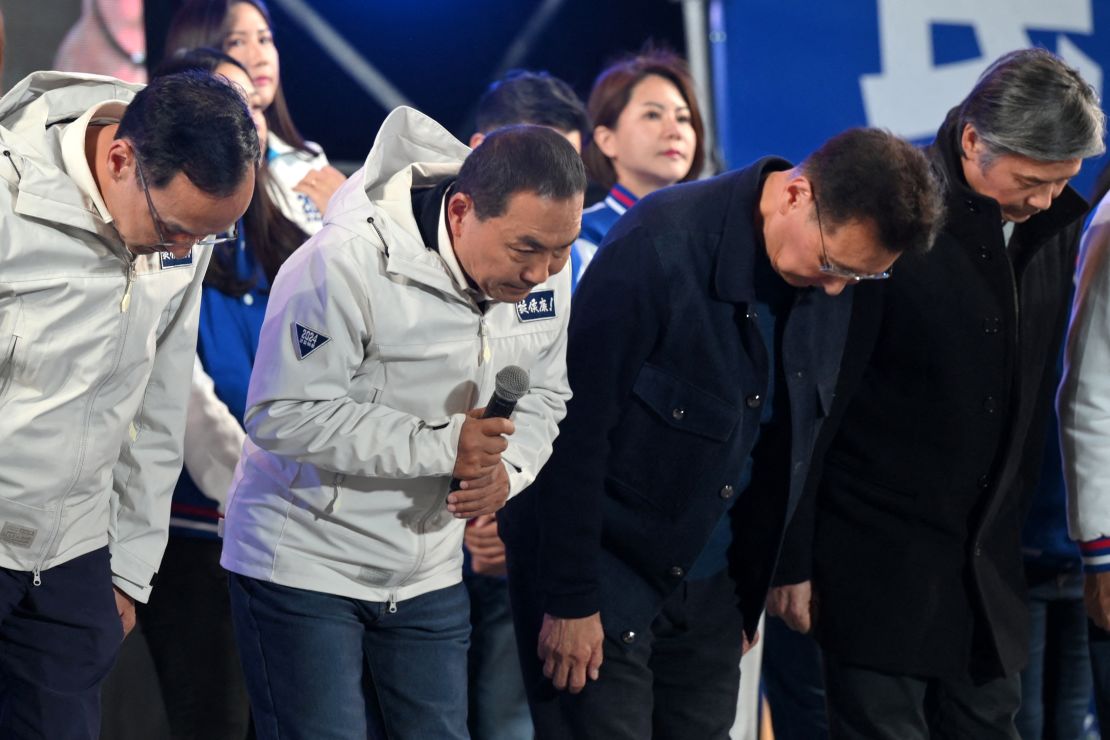
Like outgoing president Tsai Ing-wen, who cannot stand again because of term limits, Lai is openly loathed by China’s Communist Party leaders and his victory is unlikely to lead to any improvement in ties between Beijing and Taipei.
China cut off most communications with Taipei after Tsai took office and ramped up diplomatic, economic and military pressure on the self-ruled island, turning the Taiwan Strait into one of the world’s major geopolitical flash points.
China’s ruling Communist Party views Taiwan as part of its territory, despite having never controlled it. While successive Chinese Communist leaders have vowed to eventually achieve “reunification,” Xi has repeatedly said the Taiwan issue “should not be passed down generation after generation,” linking the mission to his mid-century goal of “national rejuvenation.”
The DPP emphasizes that Taiwan is not subordinate to the Chinese Communist Party, and that its future Taiwan must only be decided by its 23.5 million people.
In the run up to Saturday’s vote, Beijing warned Taiwan’s voters to “make the right choice” and “recognize the extreme danger of Lai Ching-te’s triggering of cross-strait confrontation and conflict.”
His running mate Hsiao has been sanctioned twice by China for being a “stubborn secessionist.”
Speaking to the media ahead of his victory speech on Saturday night, Lai called his win a “victory for the community of democracies.”
“We are telling the international community that between democracy and authoritarianism, we still stand on the side of democracy,” he said.
“I will act in accordance with our democratic and free constitutional order in a manner that is balanced and maintains the cross-strait status quo,” he added. “At the same time, we are also determined to safeguard Taiwan from continuing threats and intimidation from China”.
“In the future, we hope that China will recognize the new situation, and understand that only peace benefits both sides of the strait,” he added.

Blow for Beijing
Lai’s victory comes as the US is trying to stabilize fraught relations with China and prevent competition from veering into conflict. During Tsai’s administration, Taiwan bolstered ties with the United States, its biggest international backer, which increased support and arms sales to the island.
US officials have said that Washington will uphold its longstanding policy toward Taiwan no matter who takes on the top job. The Biden administration will dispatch an unofficial delegation – including former senior officials – to Taipei following the election in keeping with past practice, according to senior officials.
The delegation visit “will be a signal, a very symbolic way of supporting Taiwan,” said T.Y. Wang, a professor at Illinois State University.

Saturday’s result is another major blow for Taiwan’s Kuomintang, which back warmer relations with Beijing and have not held the presidency since 2016.
Beijing made little secret of its desire to see the KMT return to power. During campaigning the KMT accused Lai and the DPP of needlessly stoking tensions with China.
Lev Nachman, a political science professor at Taiwan’s National Chengchi University, said that while Lai has to make some economic adjustments given deep public grievances over low wages and unaffordable housing, on issues like foreign policy and cross-strait relations he is expected to largely follow Tsai’s approach.
“So much of (Lai’s) campaign has been trying to reassure not just a domestic audience, but international audience that he is Tsai Ing-wen 2.0,” he said.
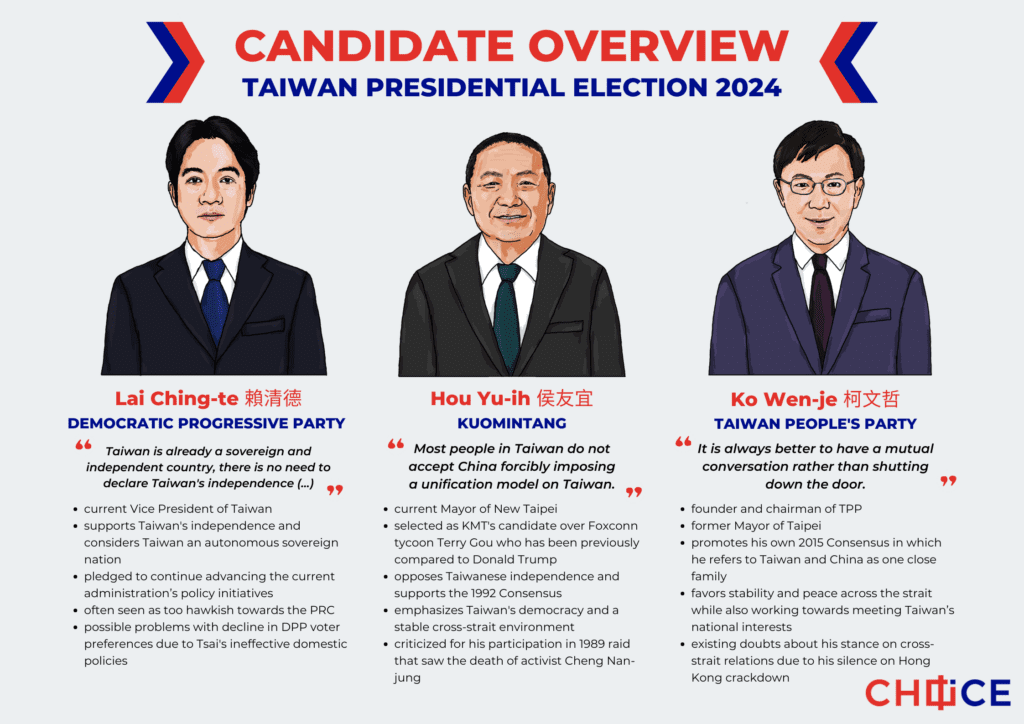
That will not be welcome in Beijing.
Days before the election, China’s Taiwan Affairs Office said by following Tsai’s path, Lai is pursuing a path of provocation and confrontation and will bring Taiwan “closer and closer to war and recession.”
Analysts say China could escalate economic and military pressure on Taiwan to show its displeasure in the coming days and weeks, or save a more forceful response for May, when Lai takes office.
“There’s multiple times that China could cause a fuss over a DPP victory, either now or later this year,” Nachman said.
And Beijing has a wide range of coercive measures in its toolbox too.
In the lead-up to the vote, China ended preferential tariffs for some Taiwanese imports under a free trade agreement. It could broaden the scope of goods targeted, or even suspend the agreement altogether.
China can also further ramp up its military pressure on Taiwan, sending more fighter jets and warships close to the island’s skies and waters, a tactic it has deployed with increased frequency in recent years.
But Taiwan’s security officials said ahead of the vote that they didn’t expect large-scale military actions from China right after the election, citing unsuitable winter weather conditions, troubles in the Chinese economy, and efforts by Beijing and Washington to stabilize ties following a bilateral summit in November.
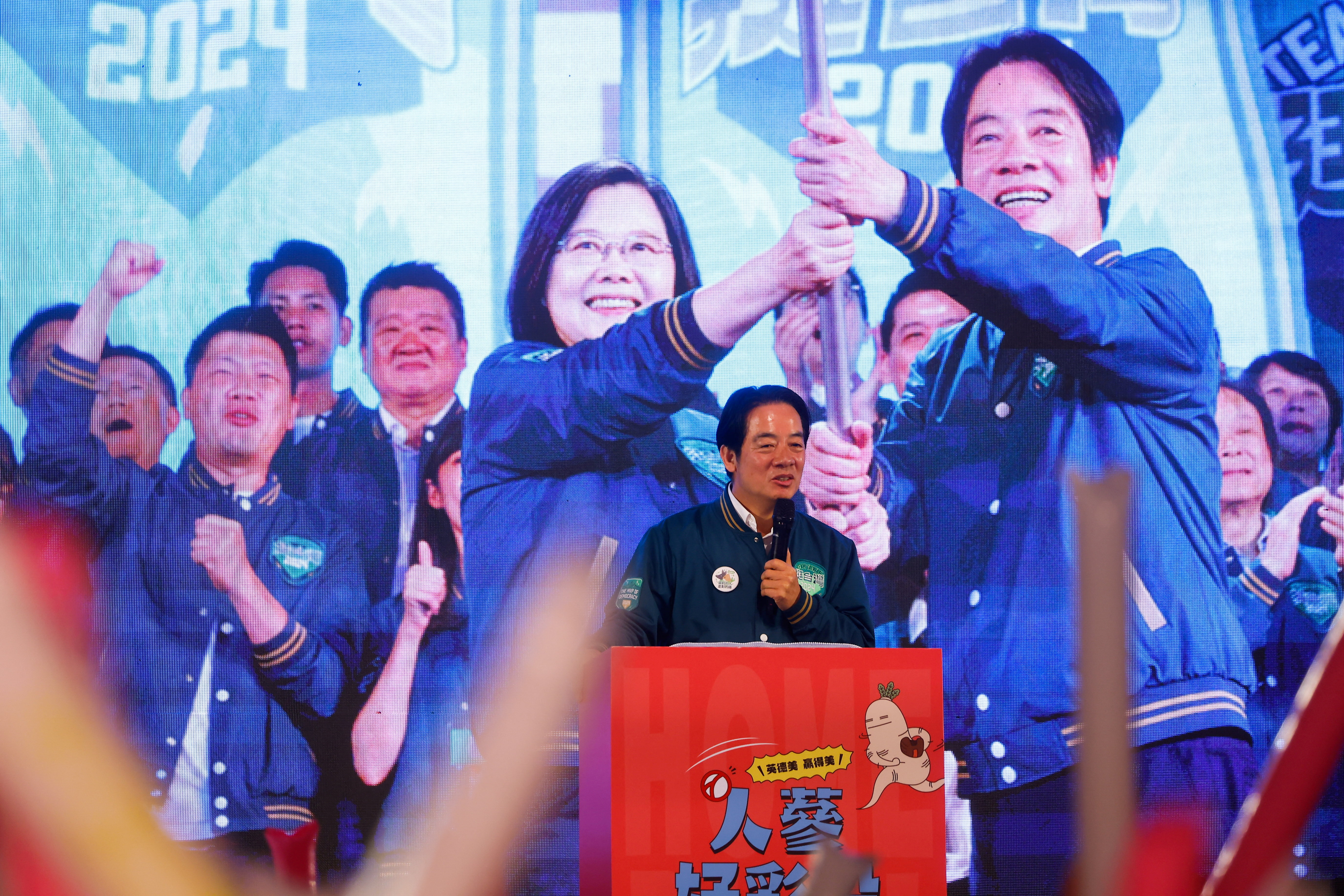
And while an escalation of military tension could increase the risks of accidents and miscalculations, it doesn’t necessarily portend an imminent conflict in the Taiwan Strait, analysts noted.
“Just because the DPP is in power doesn’t mean China’s going to war,” said Nachman.
“The last eight years have obviously been uncomfortable with the DPP in power, but it hasn’t led to war, they’ve been able to find an uncomfortable middle ground. And the hope is that even with a Lai presidency that we can continue to have this sort of uncomfortable silence without having to go to war.”
- Previous CHINA: Global Times – US is reestablishing a new Inquisition using Russia-Ukraine crisis as excuse
- Next SEOUL IS SLIDING INTO GEOPOLITICAL ZUGZWANG: North Korean foreign minister to visit Russia




